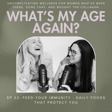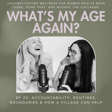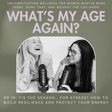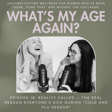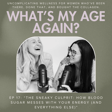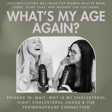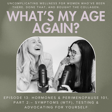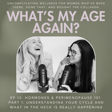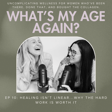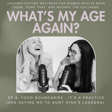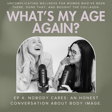
Ep 14: The 3AM Club - Why Am I Not Sleeping?!
If you’re lying awake at night asking yourself, “Why can’t I sleep?”- you’re not alone. In this episode, we dig into why sleep can become such a struggle in perimenopause.
We explore the hormonal shifts that wreak havoc on sleep, including:
- Progesterone decline – less of the “calming hormone” makes it harder to fall asleep and stay asleep.
- Estrogen decline – hot flashes, night sweats, and lighter, more fragmented rest.
- Blood sugar spikes – how late-night wine, sugar, or refined carbs disrupt sleep.
- Cortisol vs. melatonin – that “wired but tired” 2–4am wake-up call.
You’ll also learn the foundational habits that set the stage for better rest…simple but powerful shifts like creating a calming bedtime routine, making your bedroom a true sleep sanctuary, and committing to consistent wind-down practices.
Whether you’re tossing, turning, or just curious about why your sleep isn’t what it used to be, this episode will leave you with clarity, tools, and hope that better sleep is possible.
Where to find us:
IG @whatsmyageagain.podcast or email us at: wmaapod@gmail.com
Where to find Tanya:
IG @tlcholistic / FB @tlcholistic
Book with Tanya: https://tlcholistic.janeapp.com/locations/tlc-holistic
Join the TLC Community: https://www.patreon.com/tlcholistic
Where to find Kim:
IG @kimdesmarais.nutrition /FB @KimDesmarais
Book with Kim: Complimentary Connect Call

